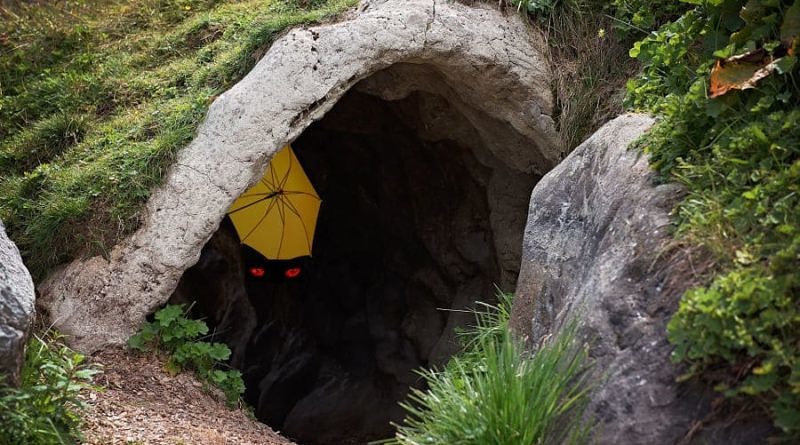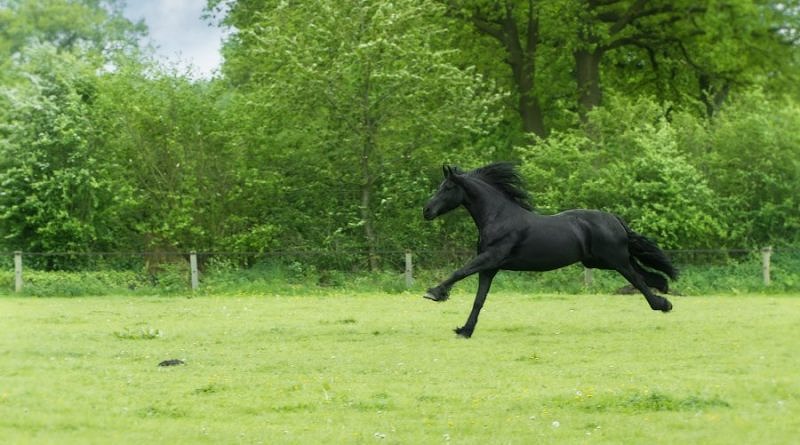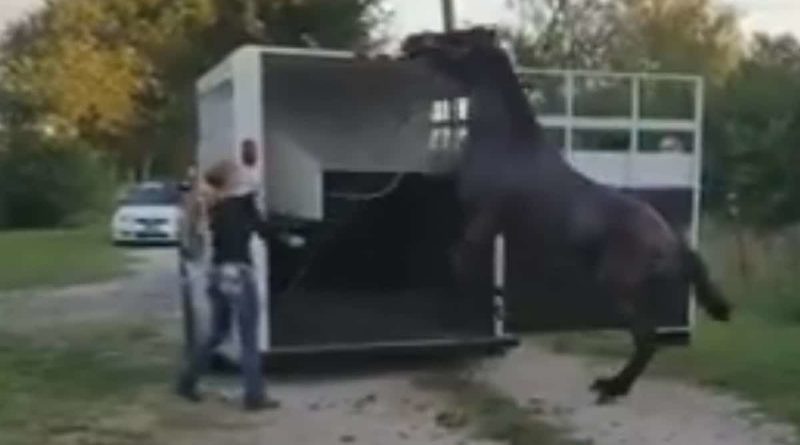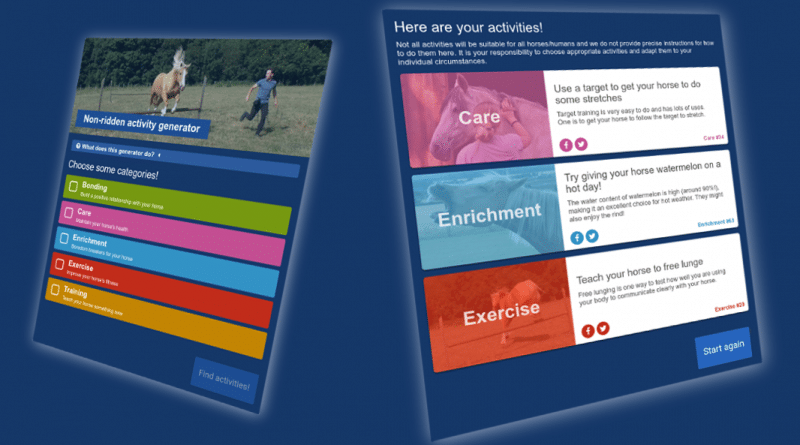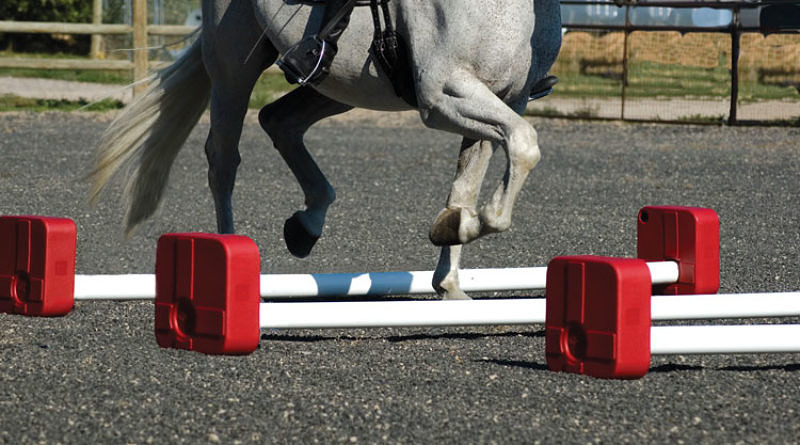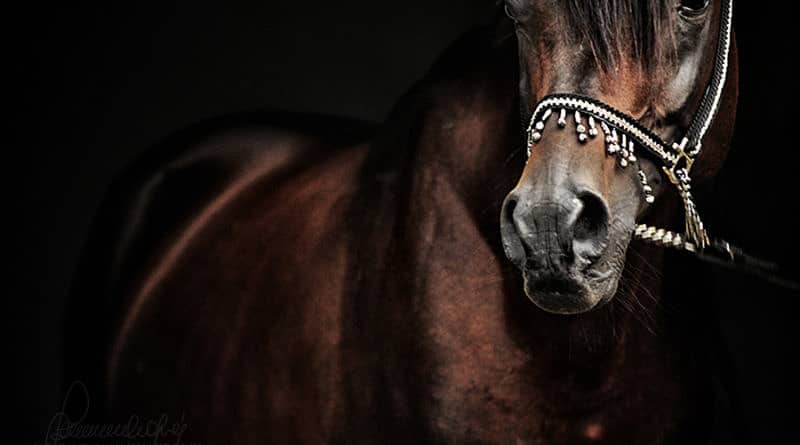Loading doesn’t have to be scary
Why don’t horses like loading? Can you do anything about it? How a positive approach can help your horse overcome their fear and learn to love loading.
Most equestrians will have had the experience of encouraging a reluctant horse to set foot in a trailer. But why don’t horses like trailers, and is there anything we can do about it?
Why horses don’t like loading
Horses are prey animals, and they primarily rely on one strategy to avoid danger – running away! So from the start it should be obvious that they will be wary of entering small contained spaces. If danger threatens them while they are in a space like a cave or a trailer a horse cannot simply run away. Over time, evolution shaped horses to avoid spaces where they can be easily trapped.
On top of this, the equine vision system is slow to adapt to varying light conditions. It takes longer for a horse’s eyes to adjust than a human’s eyes. Lead a horse quickly from a light space into a dark space and they will effectively be temporarily blinded. Entering a cramped dark space is basically a bit of nightmare for them!
But, you might be thinking, my horse goes into her stable every day! What’s the difference? Well, let’s take a moment to empathise for a second.
Empathise with your horse: a little story
Imagine as a child you are walking back home from school, along your usual route, and you notice that a new building has appeared on the corner of your street. The door is open but it is dark inside. And then your friend steps up beside you and tells you to go inside the strange new building. What do you do?
At the very least you might be hesitant. “I just want to go home!” you might tell her. “What’s the difference?” your friend says, “This is a building, just like your home.” But of course it isn’t! Even with the lights off you wouldn’t be scared to go into your own house – you are used to eating there, drinking there, sleeping there every day. You have learned that your home is a safe place for you. But the strange new building could have anything or anyone lurking inside!
Your friend is impatient, and before you have made up your mind, she grabs your arm and starts pulling you towards the door of the strange building. As they pull you towards the door you smell something, like oil, something mechanical. The path you are walking on starts to shake when you step on it, the whole building seems to be shaking as well and making strange groaning noises and… that’s it, you pull free of your friend and run back towards the street.
But your friend doesn’t give up! With a combination of pushing and pulling, she manages to get you into the strange building. You stand just inside, shaking a bit and very unsure that this is a good idea, and then BANG the door behind you is slammed shut, trapping you inside. A few minutes later a roaring sound starts and the whole building begins to shake. Mysterious invisible forces pull you side to side, throwing you off balance. After an hour or so the roaring subsides, the door is thrown open and… you stumble out into a completely new place! Your old companions, old home, and everything familiar have gone. All you were planning on doing was heading back home when this strange nightmare began. What on earth happened?
A year goes by. You get used to your new home, make new friends… and then one day you see that strange building again. How would you feel about it?
When you think about it like this, the difficult question to answer is not ‘Why don’t horses like loading?’ but ‘How do horses ever get used to loading at all?’.
How horses can learn to load
As outlined above, there are very good reasons why horses are reluctant to step foot in a trailer. Most horses will probably be scared of the trailer to begin with. And the big problem is that their previous experiences of trailers tells them that their instinct is right. They step in the scary box, and then they get trapped and shaken around! And to top it off, many horses are only loaded infrequently, so they never have the opportunity to learn, through repeated experiences, that the scary box isn’t actually that bad.
As with every aspect of horsemanship, particularly when it comes to behaviour, there is no guaranteed ‘right’ way of doing things. Different horses will respond to different things, and circumstances always vary. If you have a very obedient horse, who is used to trusting and following humans, then they may load fine without any special treatment.
You can also approach the issue by making the outside of the trailer a more annoying and uncomfortable place to be than inside the trailer. This can involve strategies such as lunging the horse around and releasing pressure only when they are near the trailer. However, even when done well this runs the risk of associating the trailer with stressful and unpleasant experiences in general. And when done badly it can sadly end up with what amounts to abuse.
Fortunately, there are more positive alternatives, which actually address the underlying issues. Your goal should be for your horse to understand that the trailer is a safe place for them to be. With some thought and effort you can even make the experience a positive one! It may take longer to start with, but in the long run it will definitely be worth it. For one thing it is much nicer for your horse!
Loading positively
Because every situation is different it is impossible to give a step by step guide, but here are a few ideas to get you started.
Allow plenty of time
Probably the most crucial aspect of teaching your horse to load is patience. So always give yourself plenty of time! Many owners end up creating obstacles for themselves by putting themselves in positions where they are forced to rush the loading process. Obviously once your horse is comfortable loading you won’t need to worry about this so much, but for first-time loading, or for horses you already know have an issue with loading, realise up front that you might need a day or two.
‘Dressing’ the trailer
Metal ramps, squeaks, strange smells – all of these may contribute to your horse’s feeling of fear. Try as much as possible to make the trailer seem like a more normal place: put down straw (ideally including some from your horse’s stable for a familiar smell), tie up a haynet and secure the loading ramp as much as is practical.
Give your horse a chance
If possible, simply leave the trailer in your horse’s field for a day or two. Many horses will eventually end up investigating the trailer out of curiosity. Remember the empathy story? Imagine that your friend hadn’t tried to force you to go into the strange building. The next day you might have gone and peeked through the door all on your own!
Make the experience positive and repeat!
The first time you manage to lead your horse onto a trailer, don’t just breathe a massive sigh of relief and then close the door and start the engine. Spend a couple of seconds on the trailer, give your horse a treat, and then lead him or her off again. Repeat until your horse is comfortable and relaxed. Similarly, after shutting the door, open it again, untie your horse and lead them out again. Try to build up a bank of positive experiences.
Why a positive approach is worth the effort
As mentioned above, there are any number of ways to approach loading, some of which may have quicker initial results than a positive approach. But there are two huge benefits to a positive approach.
Firstly, a positive approach will pay off in the long term! If you have gone for an approach that involves making the outside worse than the inside, then what happens if, one day, the trailer is a bit scarier than normal? Your horse may refuse, and then you have to step up the pressure again! But if your horse thinks about trailers as generally pretty good places – that they are cosy, a good place for getting carrots or mints, and basically like a second stable – then their attitude will be completely different.
Secondly, the positive approach is simply more pleasant and better for your horse! Rather than training your horse to just ‘feel the fear and do it anyway’, it is much better to remove as much of the fear and stress as you can from the beginning. Rather than chivvying your horse into a scary cave, invite them into a fun little mobile home.
So whether you are travelling to an event, exploring new hacking territory or moving home, let loading be a positive first step of you and your horse’s next adventure.

